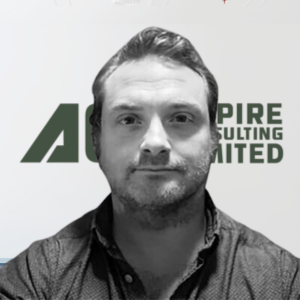I’ve been sitting on this article for a little while, it was always missing something. Then, Peter Stuttard shared a quote (on LinkedIn) from a Navy Lookout article titled “End in sight for Royal Navy attack submarine woes?”. The article, written about the UK’s Astute submarines, said…
“While they are fine boats, their maintenance demands appear to be high with not enough attention paid to through-life sustainment during their design. This has been compounded by a lack of foresight and investment in submarine support infrastructure.”
“Lack of foresight”, that’s the jump off point that I’ve been missing so, now that I’ve found it, here we go…
I listened to the audio version of Richard Dawkins’ book The Blind Watchmaker (I’ve subsequently bought it in print too) and I knew that I wanted to draw some parallels between the way that Dawkins describes biology and, ultimately, the way that he describes the blind watchmaker, with some of my experiences working in and around integrated support.
The book
The book itself is concerned with persuading its reader that evolution by natural selection is the only “workable explanation that has ever been proposed, for the existence of life’s complexities”.
Dawkins sets his argument up as a counterargument to William Paley’s famous opening to his book Natural Theology. In his opening, Paley plays out a thought experiment whereby he stumbles across two items on a walk. The first is a stone and, on wondering how the stone got there, he supposed that it may well have been there forever. The second item that he stumbles across is a watch and, in contemplating the same question of how it came to be there, the apparent complexity of the watch and its workings made the proposition that it had been there forever less satisfactory. The watch’s complexity infers that it has been designed and manufactured by a watchmaker.
Paley goes on to conclude that the complexity of life also infers a maker, and it is that conclusion which is being challenged by Dawkins.
Biology and supportology*
“Biology is the study of complicated things that give the appearance of having been designed for a purpose”
Dawkins’ definition of biology piqued my interest because it occurred to me that biologists and supportologists** clearly have something in common.
As a supportologist, if you’ve ever had the pleasure of trying to establish exactly what a support system looks like, you’ll know that it is hugely complicated. Almost impossible. You’ll know that the myriad analyses, artefacts, cases, contracts, plans and reports around the place will likely give the illusion that the support solution has been designed.
“The study of complicated things that give the illusion of having been designed for a purpose” – yeah. I can relate to that.
Much like the complicated things that biologists study, many support systems that are in place today might have features that suggest they have been designed. In reality, they have just sort of ‘evolved’. They’ve emerged over a period of time, the result of cumulative change in response to emergent pressures and factors.
The difference, between support systems and biological systems, is that there is no excuse for a support system to mindlessly develop without the benefit of foresight.
The support system ought to have been designed.
Watchmakers
The Blind Watchmaker from Dawkins’ book is Natural Selection. It is the lack of foresight that makes it blind. Of Natural Selection he says…
“It has no mind and no mind’s eye. It does not plan for the future. It has no vision, no foresight, no sight at all”
I know what you’re thinking.
That applies to some project managers or logisticians that you’ve met before. That implies a level of wilful blindness on the part of the person.
It may well be true in some rare cases but it’s a little mean-spirited so, let’s depersonalise it and say that we’ve all seen projects that, when it comes to the support engineering, certainly fit the bill. They blindfold their watchmakers.
These are the projects that make the headlines.
The submarine fleets that cannot sail, the aircraft fleets that don’t meet their readiness targets, the land vehicles that cannot be deployed.
A successful project – successful equipment – is dependent, in large part, on true watchmakers.
“A true watchmaker has foresight: he designs his cogs and springs and plans their interconnections, with a future purpose in mind”
Systems engineers, SUPPORT systems engineers (and it is an engineering discipline); these are the true watchmakers and, if they are enabled and empowered to do so, they will design the inner workings of your support system. They will plan (or design) the interactions between your support elements and your operational system.
They’ll use support analysis to do it.
When executed properly, by true watchmakers, support analysis will design your support system (not just give it the illusion of design). It will keep your equipment away from the headlines and on operations, where it belongs.
*Supportology – the study of support systems, including the design and delivery of support
**Supportologist – someone who studies support systems

About the Author
Lee Fitzsimons is a support solutions engineer and guide at Aspire Consulting Ltd. Lee is a former RAF helicopter technician. He has worked at senior level on a wide range of support engineering programmes, from small arms training systems to ships components to land vehicles and aircraft. Lee writes articles, presents papers and delivers lectures and training on a variety of support topics.
Connect with Lee on LinkedIn

About Aspire
What does Aspire do? Almost every organisation on the planet uses equipment to deliver its service. Very few are always
happy with the performance of that equipment. We train, guide and
collaborate with organisations to design support solutions that keep
equipment performing, so they can deliver their service, consistently and
effectively.
Follow Aspire on LinkedIn
